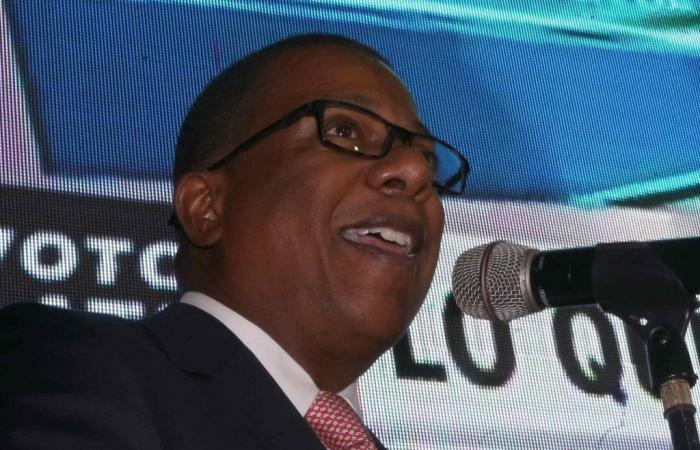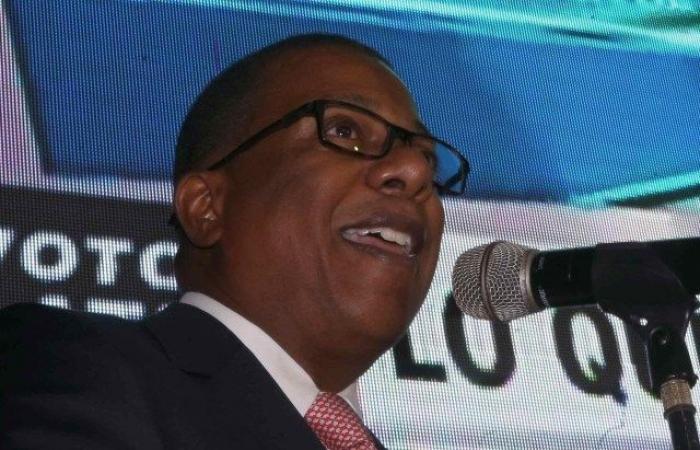The United States believes that there is still time for the presidential elections in Venezuela to be competitive and opens the door to recognizing the results if minimum standards are met, explains the person in charge for Latin America at the State Department, Brian Nichols.
Days before traveling to Paraguay to participate in the General Assembly of the Organization of American States (OAS), Nichols speaks with EFE about the situation in the region, such as judicial reform in Mexico, the security crisis in Haiti and the visit of a Russian flotilla to Cuba.
Question: What does the United States expect from the OAS General Assembly?
Answer: It will be a great opportunity to talk about key issues in our region such as sustainable development and the defense of democracy, and to focus on key issues such as support for Haiti and the people of Nicaragua.
Elections in Venezuela can be competitive
Q: Will the OAS Assembly take advantage of the opportunity to seek a common position for the region regarding the upcoming elections in Venezuela?
A: We communicate periodically with our partners about the importance of democracy in our region. We hope that there will be competitive elections and that the Venezuelan people will have the opportunity to elect their own leaders.
Q: Do you think elections can be fair?
A: Well, I think they can be competitive. Obviously the playing field is tilted in favor of Maduro, but if we look at the size of the opposition demonstrations, we see that there is a lot of enthusiasm and the opposition is quite optimistic. We will observe the process closely and we hope that the presence of international observers will help provide greater guarantees to the process.
Q: What does the United States have to do with recognizing the results?
A: The international community will examine the process and try to determine whether or not it meets standards. We will have to see how it plays out and we will talk about it with our allies around the world, it will not be decided by the United States individually.
Q: Would you recognize a victory for Nicolás Maduro?
A: It depends on the circumstances. There is still more than a month until the elections and we will see what happens until then.
More contribution to the mission of Haiti
Q: The deployment to Haiti of the Kenyan-led security mission seemed imminent last month. What is the reason for the delay?
A: We are making final preparations. The equipment is ready. Some final steps must be taken. We are very excited about the installation of a new prime minister in Haiti, in addition to the transitional Presidential Council.
Q: Do you have any timeline for deployment?
A: Yes, but for security reasons I cannot give details.
Q: Has sufficient international funding been achieved?
A: The United States has given 300 million dollars. We are making an important contribution and we need our allies to step up with their contributions.
Judicial reform in Mexico
Q: Claudia Sheinbaum has just won the elections in Mexico with a big margin. Do you foresee any changes in the relationship with Mexico?
A: We believe that our great relationship with Mexico will continue under Sheinbaum’s presidency. She knows the United States very well, has worked and lived here and was an excellent partner when she was mayor of Mexico City.
Q: Sheinbaum supports judicial reform under which Supreme Court justices would be elected by citizens. Do you fear that this will affect the independence of the Judiciary?
A: This is a topic that deserves a transparent debate. It is a sovereign issue for Mexico and we will carefully observe how the process develops. We are obviously interested in ensuring that the rights of American investors are protected from any changes.
The Russian flotilla in Cuba is not surprising
Q: A Russian flotilla visited the port of Havana. Russia said the visit had the desired effect and irritated the United States. What is your answer?
A: We take security on the continent very seriously. We want to maintain a peaceful, democratic and prosperous region. Russia provides none of those things. However, this is not new. Russian, and formerly Soviet, ships have been visiting Cuba for decades, so it’s not particularly surprising to us.
Q: The Joe Biden Administration has increased security cooperation with Cuba. Do you plan to remove the island from the list of countries that promote terrorism?
A: For many years, even before the Biden Administration, we have had forums and consultations with Cuba on areas of mutual interest, such as migration. That being said, we are not considering any changes to the roster at this time. EFE







